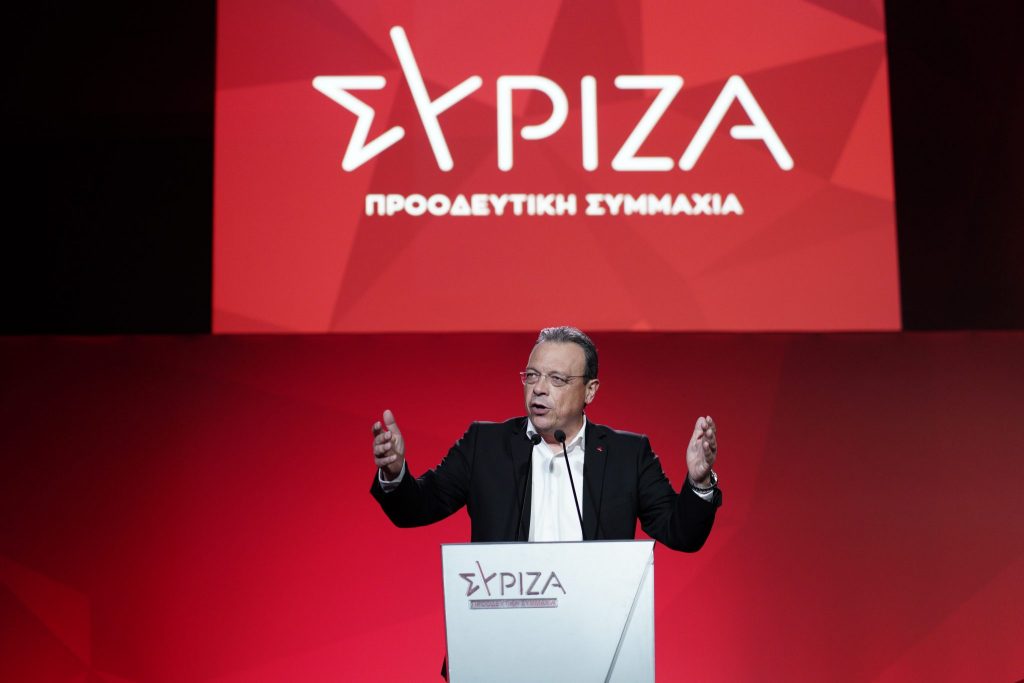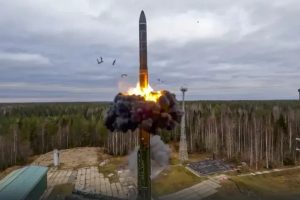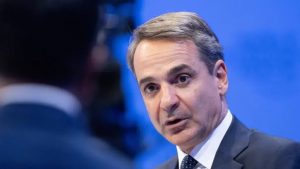The withdrawal of Romanian President Klaus Iohannis’s candidacy for NATO Secretary General on June 20 removed the last hurdle to Mark Rutte’s ascendance to the highest-level job in the Alliance. The outgoing Dutch Prime Minister has secured the unanimous endorsement of the ‘32’ and is poised to become the fourth Dutchman in history to hold NATO’s top office.
A political survivor, a conservative consensus-builder, and a staunch supporter of Ukraine, Rutte is viewed by many as the safest choice to take the helm. His priorities and policies, albeit evolving, are not expected to be significantly different from his predecessor’s. He will have to manage and maintain rather than originate and create. He will need to keep the Alliance on track rather than blaze new trails. This is much harder than it sounds, especially when new challenges arise constantly. But Rutte has the credentials to do the job. NATO’s next leadership is not likely to deliver many surprises to enemies or allies. Greece should take note of that.
The most pressing issue Rutte will face is Ukraine. At a time when the fashionable term ‘Ukraine fatigue’ is used more and more to pre-emptively justify the reticence of some Western national parliaments to continue supporting Ukraine, NATO’s Secretary General must keep the ball rolling. Rutte’s record tells us he will be determined to do so.
Under his leadership, the Netherlands exceeded for the first time the 2% threshold in defense spending. This milestone comes as a testament to Rutte’s unwavering commitment to the boosting of the Allies’ defense capabilities and, as an extension, to their capacity to buttress Ukraine’s defense. The Netherlands is one of the few European countries to send F-16 fighter jets to Ukraine. Additionally, Rutte has been an outspoken critic of Putin and a passionate advocate for Ukraine’s material, financial, and diplomatic support. He has repeatedly stressed the imperative need for Ukraine’s victory tying it to the security of Europe writ large. His actions have followed his words as the Netherlands has been one of the most consistent backers of Ukraine under his premiership. On top of that, he shares a cordial relationship with Ukrainian wartime leader Volodymyr Zelensky.
On the other hand, his pragmatic approach in international affairs and his diplomatic acumen have prevented him from crossing the line, maintaining a hard stance towards the Russian aggression while advising caution and restraint. Not unlike the incumbent Secretary General, Rutte is tough enough on Russia to not be considered conciliatory, but not so tough that he be deemed hawkish and bellicose.
Equally important for Rutte will be the preservation of transatlantic unity and intra-Alliance solidarity. Jens Stoltenberg did a good job managing the divergent views and conflicting interests among the NATO allies, a task greatly facilitated by Russia’s invasion in Ukraine that provided a solid common cause around which the allies rallied. As the initial shock of the attack withers down, differences among allies are likely to resurface.
Being the second longest-serving European leader and a key figure in EU politics, Rutte surely has the experience and the know-how to cut deals and build consensus. He has demonstrated this ability in an array of cases throughout his political career, from assuming instrumental roles in EU budgetary negotiations to striking deals on migration flows with Turkey and Tunisia. Even the mere fact that he managed to garner support for his NATO Secretary General bid from Hungary’s Orban, with whom he has had a rocky relationship due to the latter’s controversial record on political freedoms and LGBTQ+ rights, showcases his skillful dealmaking.
But the most serious challenge to NATO’s unity might come from the other side of the Atlantic. The US elections in the upcoming November may well bring Trump 2.0 behind the Oval Office and whether this version will be better or worse than the first one is unknown. What is almost certain, however, is that the NATO top officer must be ready to tread a fine line between the expectations of the newly elected American President (if this will be Trump) and what the European leaders are willing and able to deliver. The Trump scenario is maybe the primary reason for Rutte’s being the top candidate for the job in the first place. Nicknamed ‘the Trump whisperer’ for his reconciliatory interventions when the situation between the then-US President and influential European heads of state almost went out of hand, the Dutchman has a proven tracked record of managing the unpredictable former American leader. He famously eased tensions by gently talking down Trump during a 2018 NATO summit when the latter threatened to pull the US out of the Alliance unless the European partners increased their military spending. Again in 2018, he stepped in to resolve US-EU tariff disputes.
His diplomatic savvy, coupled with his easy-going personality, gave him an edge in dealing so effectively with Trump that the American called him his friend, a rare characterization for his standards when referring to European leaders on personal level. With this history behind him, Rutte seems to be even more capable than the current Secretary General in ‘Trump-proofing’ the Alliance. This skill might come in handy from November onwards.
Focusing the lens on Athens, Rutte’s era is not likely to bring about fundamental shifts in how NATO handles matters related to Greece, such as the Greek-Turkish relations. Athens was often irked at Jens Stoltenberg’s maneuvering in not reprimanding Turkey for air space violations and acts of bravado in the Eastern Mediterranean. Greece has associated Stoltenberg’s NATO with fence sitting when it comes to Turkish provocations. Expecting Rutte’s NATO to be any different is futile. The Dutch conservative has locked horns with Erdogan over Türkiye’s democratic backsliding, such as efforts to stifle the press and the imprisonment of political dissidents, but their relations have markedly improved since then. After a meeting in April, the Turkish President threw his support behind Rutte’s candidacy after the Dutchman paid heed to his concerns over the EU’s counterterrorism approach (regarding PKK in particular) and NATO members’ arms sales restrictions on the Turkish defense industry. Instead, Greece should anticipate an attitude from Rutte akin to Stoltenberg’s. Coming from a non-EU country, Stoltenberg could readily separate between Europe’s problems and NATO’s priorities. For Rutte, this might be more challenging, but the Dutch Prime Minister is adept at striking balances.
Mark Rutte can offer the pragmatic and stable leadership that NATO needs to navigate the volatility of the world around it. His experience in managing big egos and his consensual politics that kept him afloat during turmoil render him well-placed to forge deals and maintain NATO’s unity. His demonstrated loyalty to the Ukrainian cause hints at NATO’s continuing backing of Kyiv with reinvigorated vigor. Allies and foes alike should not expect any grand surprises on core matters or on NATO’s long-standing strategies. This obviously applies to Greece as well. It remains to be seen if Rutte will be able to weather crises as they emerge and to what extent he will succeed in leading the Alliance through situations where consensus will be unattainable. Future challenges, such as relations with China or NATO cooperation on sensitive technologies, will set the stage for such occurrences.
* Vasilis Petropoulos is a Washington DC-based international relations analyst currently working at the James Martin Center for Nonproliferation Studies. He has published numerous opinion pieces on great power politics, including with Foreign Brief, the Washington Institute for Near East Policy, Foreign Affairs, and The Warsaw Institute of Geopolitics. Mr. Petropoulos has a Master’s Degree in Law and Diplomacy with a focus on Conflict Resolution & Great Power Competition from The Fletcher School at Tufts University.


